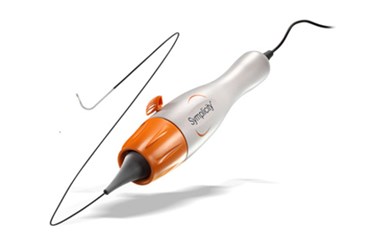Medtronic, Boston Scientific To Resume Renal Denervation Trials

Medtronic and Boston Scientific recently announced plans to launch phase 2 clinical studies of their updated renal denervation catheters for hypertension treatment later this year. Though no renal denervation technology has yet received FDA approval, scientists are still betting on its eventual success in treating cases of hypertension that are resistant to drugs.
The CDC estimates that 70 million people in the U.S. suffer from chronic high blood pressure, and despite the availability of a wide array of anti-hypertensive medications, only half of hypertension patients have the condition under control.
Renal denervation technology (RDT) involves threading a catheter through the femoral artery to both renal arteries, where low-power radio frequency energy is delivered to selectively disable renal nerves. Scientists believe that blocking the electrical signals that travel to and from these nerves can reduce fluid and salt retention and reduce the likelihood of renin-angiotensin-aldosterone-system (RAAS), which causes blood vessels to constrict. According to Medtronic, the procedure is minimally invasive and thought to be potentially effective where hypertension medications have proven ineffective.
Currently Medtronic, Boston Scientific, and St. Jude Medical all have renal denervation catheters in their development pipeline.
Last year, Medtronic’s phase 2 clinical study of Symplicity HTN-3 failed to meet its primary endpoint, though researchers found that the technology met all of the safety criteria.
Though the method wasn’t effective in the first round of clinical trials, Omar Ishrak, CEO of Medtronic, told Reuters that “renal denervation is a sound concept.”
Following the failed Symplicity HTN-3 trial, Medtronic sought feedback from a panel of experts and hopes that a revamped design will be granted an investigational device exemption (IDE) from the FDA.
Michael Coyle, head of Medtronic’s cardiac and vascular group, told Reuters, “We still have work to do, but I think we know what we want to do with the next IDE study, and we will see if we can come to agreement with the agency on moving forward with it.”
In its quarterly report, Boston Scientific announced plans to begin enrolling patients in a clinical study called REDUCE-HTN REINFORCE, to test the effectiveness of the company’s Vessix renal denervation platform. Boston Scientific acquired Vessix Vascular and its renal denervation system in 2012.
According to Forbes, it is unlikely that either Medtronic’s or Boston Scientific’s renal denervation clinical studies will be fully enrolled and underway before early 2016.
Image credit: Medtronic
